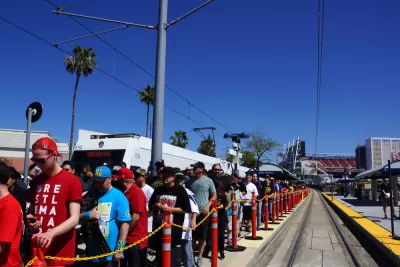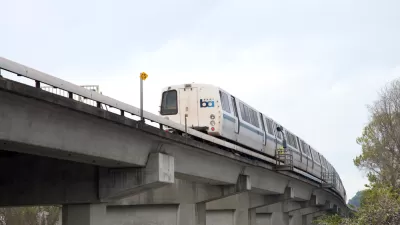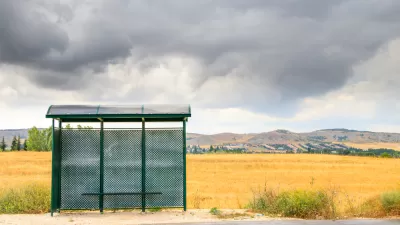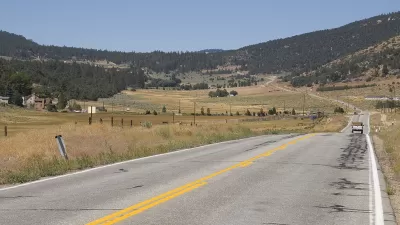Lauded by the administration as a historic amount, the transit funding promised in the revised bill lags far behind projected needs.

The inadequate transit funding in the proposed federal infrastructure bill threatens to halt the progress of transit systems in the U.S., "locking in hundreds of billions of dollars for highways while setting transit up for long-term cuts in funding," as reported by Deron Lovaas. Yet despite America's reputation as car-centric, "[i]n 2018 alone we took almost 10 billion trips by bus, train, or other means of travel. And this way of getting around benefits us all, whether we live in cities, suburbs, or rural areas."
Furthermore, transit is crucial to the livelihoods of many. "More than half of riders use transit because they need to (cars are expensive to own and maintain!) or because they want to save money. That means transit is one of the best investments we make in equity. And not just economic equity — 60 percent of riders are Black, Indigenous or People of Color."
Yet funding–particularly guaranteed funding–lags far behind estimated needs. Passing guaranteed transit funding, argues Lovaas, is important because it "is more useful to transit agencies than non-guaranteed funding," allowing them "to plan and finance projects more cost-effectively," and because "[i]f transit loses ground in this round of negotiations, the starting line for transit next time around will be even farther from where it needs to be." According to Lovaas, "[n]ow is the time to take a leap forward by sticking with the deal in place since 1982 and delivering a boost to transit investment on top of it, not taking a big step back."
FULL STORY: We Cannot Short-Change Transit—Not Now

Maui's Vacation Rental Debate Turns Ugly
Verbal attacks, misinformation campaigns and fistfights plague a high-stakes debate to convert thousands of vacation rentals into long-term housing.

Planetizen Federal Action Tracker
A weekly monitor of how Trump’s orders and actions are impacting planners and planning in America.

In Urban Planning, AI Prompting Could be the New Design Thinking
Creativity has long been key to great urban design. What if we see AI as our new creative partner?

Study: London Low-Traffic Neighborhoods See 35% Drop in Road Injuries
London’s effort to reduce speeds and limit vehicles in parts of the city are contributing to improved road safety.

Dorm-Style Housing: A Solution for DC’s Vacant Office Buildings
Adapting office buildings to dorm-style housing with shared spaces is a much more affordable option than repurposing offices into apartments.

Opinion: LOS has ‘No Redeeming Quality’
The commonly used Level of Service metric that grades intersections based on traffic speed rather than safety is a key contributor to dangerous roadways.
Urban Design for Planners 1: Software Tools
This six-course series explores essential urban design concepts using open source software and equips planners with the tools they need to participate fully in the urban design process.
Planning for Universal Design
Learn the tools for implementing Universal Design in planning regulations.
Gallatin County Department of Planning & Community Development
Heyer Gruel & Associates PA
JM Goldson LLC
Mpact (founded as Rail~Volution)
City of Camden Redevelopment Agency
City of Astoria
Jefferson Parish Government
Camden Redevelopment Agency
City of Claremont





























